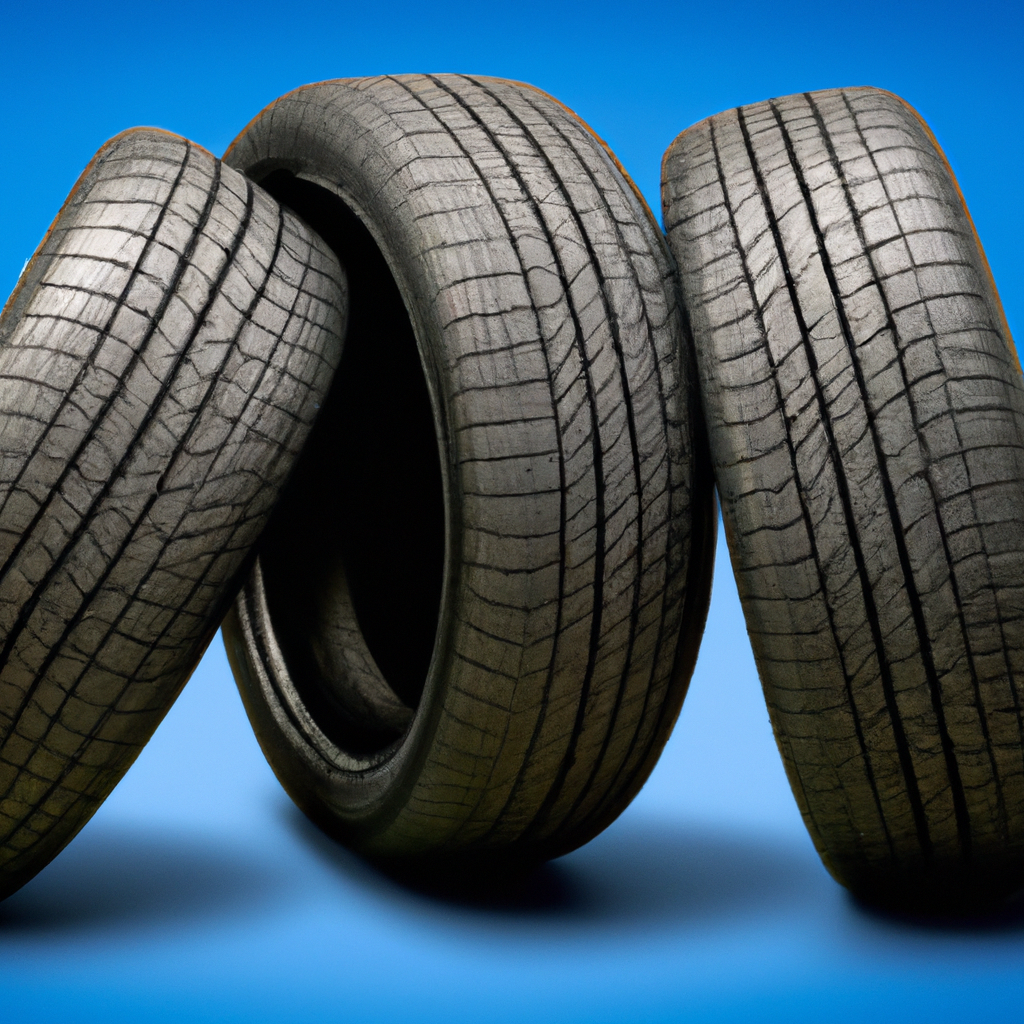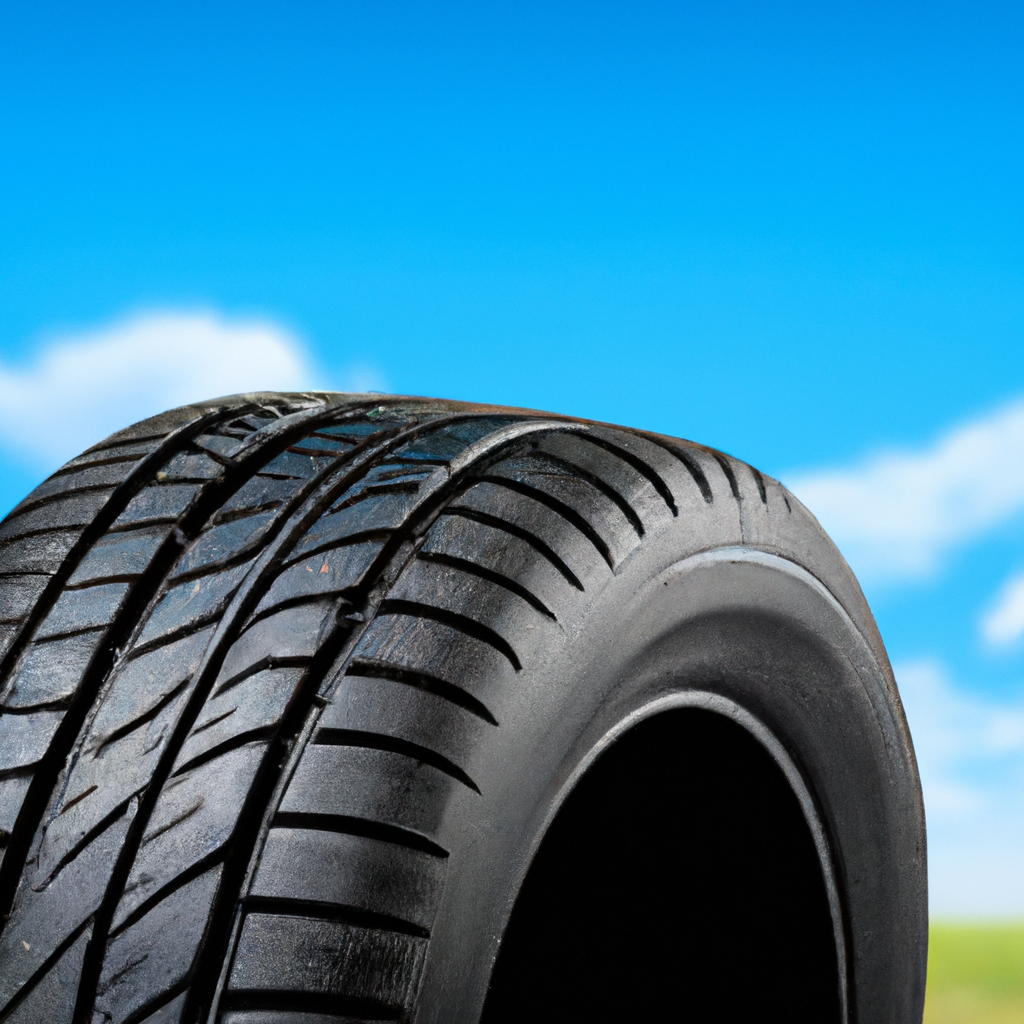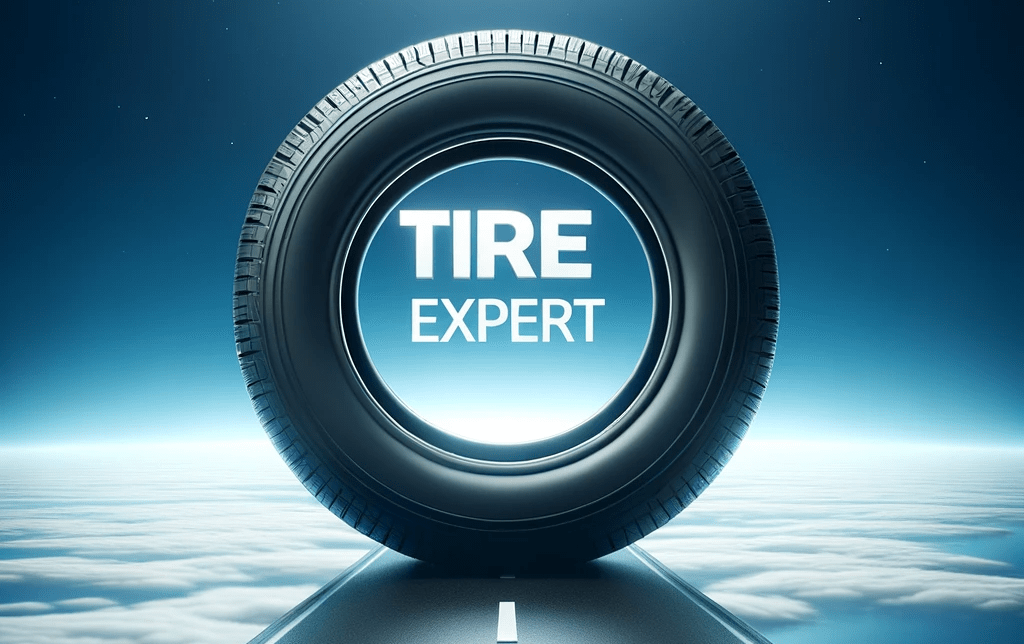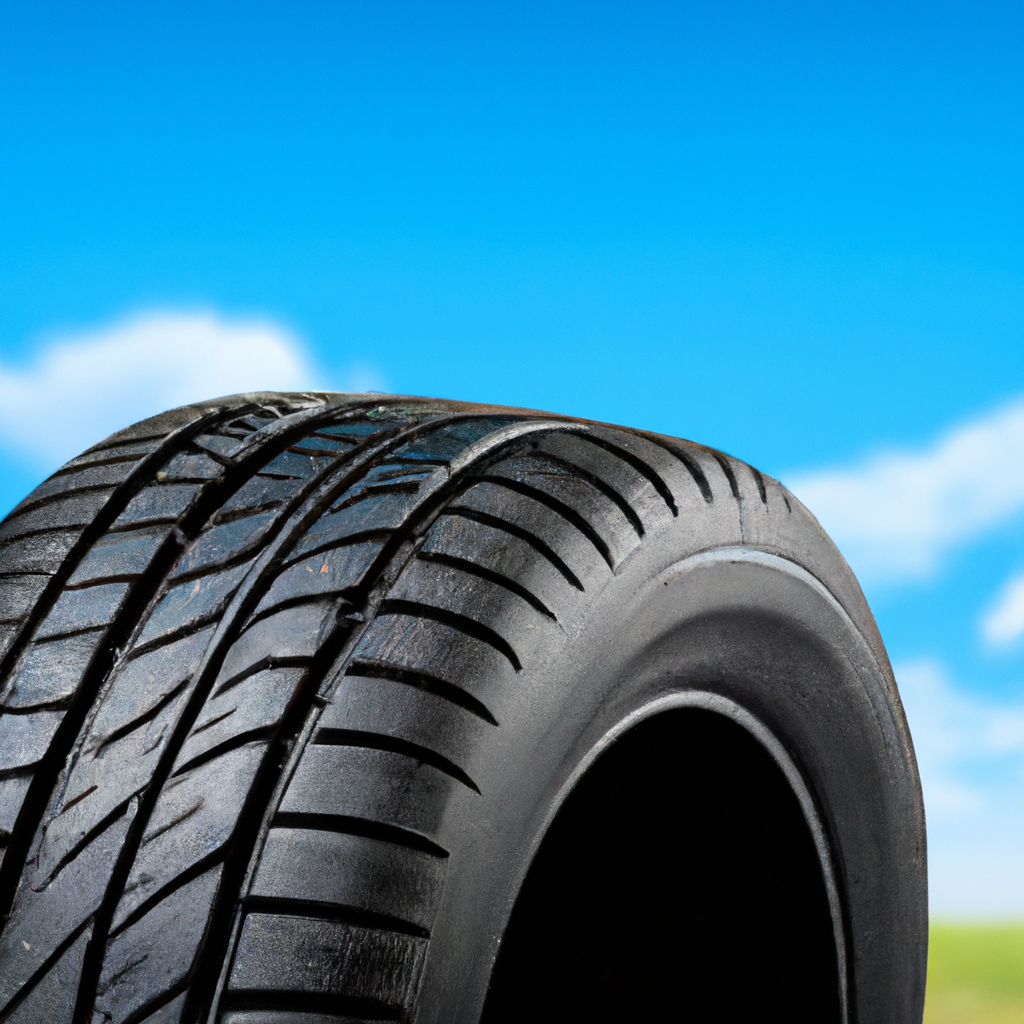When it comes to taking care of your summer tires, there are a few strategies that can help extend their lifespan and keep you safe on the road. From proper tire inflation to regular rotations, these simple steps can make a difference in how long your tires last and how well they perform. So, buckle up and get ready to discover some valuable tips that will keep your summer tires rolling smoothly throughout the season.
Proper Tire Maintenance
Regularly Check the Tire Pressure
Maintaining the correct tire pressure is crucial for the longevity and performance of your summer tires. It is important to regularly check the tire pressure, at least once a month, to ensure that they are properly inflated. Underinflated tires can cause increased rolling resistance, leading to reduced fuel efficiency and uneven tire wear. On the other hand, overinflated tires can result in a harsher ride and higher risk of blowouts. By regularly checking and adjusting the tire pressure, you can help extend the lifespan of your summer tires and ensure optimal performance.
Rotate the Tires
One effective strategy for prolonging the lifespan of your summer tires is to regularly rotate them. Tire rotation involves moving the front tires to the back and vice versa, as well as swapping the tires from one side of the vehicle to the other. This helps to ensure that the tires wear evenly, as front tires tend to wear more quickly due to factors such as steering and braking. By rotating the tires regularly, typically every 5,000 to 7,000 miles, you can help maximize the overall tread life and performance of your summer tires.
Proper Wheel Alignment
Proper wheel alignment is another important factor to consider when aiming to extend the lifespan of your summer tires. Wheel alignment refers to the adjustment of the angles of the tires so that they are perpendicular to the ground and parallel to each other. Incorrect alignment can lead to uneven tire wear, causing the tires to wear out prematurely. To prevent excessive and uneven tread wear, it is recommended to have the wheel alignment checked and adjusted by a professional at least once a year or whenever you notice any signs of misalignment, such as the vehicle pulling to one side.
Inspect the Tread Depth
Regularly inspecting the tread depth of your summer tires is essential for both safety and longevity. Tires with insufficient tread depth may not provide adequate traction, especially on wet or slippery surfaces. To check the tread depth, you can use a tread depth gauge or simply place a penny upside down into the tread grooves. If you can see Lincoln’s head on the penny, it is a sign that the tread depth is too low and it is time to replace the tires. By regularly inspecting and monitoring the tread depth, you can prevent excessive wear and ensure that your summer tires are in optimal condition.
Driving Habits and Techniques
Avoid Aggressive Driving
One of the most impactful strategies for extending the lifespan of your summer tires is to avoid aggressive driving. Rapid acceleration, hard braking, and sharp cornering can all put unnecessary strain on the tires, causing them to wear out more quickly. By adopting smoother and more controlled driving habits, you can minimize the stress on the tires and help them last longer. Be mindful of your driving style and aim for a more relaxed and gradual approach when accelerating, braking, and maneuvering. Your summer tires will thank you for it!
Maintain Safe Speeds
Maintaining safe speeds not only contributes to road safety but also helps preserve the lifespan of your summer tires. Driving at excessive speeds generates more heat in the tires, which can accelerate tire wear and increase the risk of blowouts. By observing speed limits and driving within a safe and reasonable range, you can reduce the strain on your tires and promote their longevity. Remember, it’s always better to arrive a little late than to compromise your safety and the lifespan of your tires by driving recklessly.
Steer Clear of Potholes and Obstacles
Potholes and road obstacles can cause significant damage to your summer tires if you’re not careful. Hitting a pothole or running over debris can lead to tire punctures, sidewall damage, or misalignment issues. To protect your tires, be vigilant on the road and try to avoid potholes and obstacles whenever possible. If you must drive over a pothole or obstacle, slow down and proceed with caution, ensuring that you don’t hit them at high speeds. Being mindful of the road conditions and avoiding unnecessary risks can go a long way in preserving the lifespan of your summer tires.
Avoid Excessive Braking
Frequent and excessive braking can wear down your summer tires faster than necessary. When you brake hard, the tires experience increased friction and heat, causing the tread to wear down more quickly. To prolong the lifespan of your tires, try to anticipate your stops and brake gradually and smoothly. This not only reduces the stress on the tires but also improves fuel efficiency and promotes a smoother driving experience. By practicing gentle braking techniques, you can have a positive impact on both your tires and your overall driving experience.

Storage and Seasonal Changes
Consider Using Winter Tires
If you live in an area with harsh winter conditions, considering the use of winter tires can be a wise choice. Winter tires are specifically designed for cold temperatures, slush, ice, and snow, offering superior traction and handling in these challenging conditions. By using winter tires during the colder months, you can protect your summer tires from the harsh winter elements and prolong their lifespan. Winter tires are designed to excel in low temperatures, and their use allows your summer tires to remain in storage, avoiding unnecessary wear during the winter season.
Properly Store Summer Tires
When it comes to seasonal changes and storing your summer tires, proper storage is essential for maintaining their lifespan. Before storing your tires, make sure they are clean and dry to prevent the growth of mold and mildew. Avoid storing them near sources of heat or direct sunlight, as excessive heat can cause tire damage. It is also important to keep your tires away from chemicals and oils, as these substances can deteriorate the rubber compound. Consider using tire covers or storing them in a cool and dry place to protect them from environmental factors that could potentially shorten their lifespan.
Avoid Extended Exposure to Sunlight
Excessive exposure to sunlight can have damaging effects on your summer tires. UV radiation can cause the rubber to deteriorate over time, leading to cracking and loss of flexibility. To protect your tires from UV rays, it is advisable to park your vehicle in shaded or covered areas whenever possible. If long periods of sun exposure are inevitable, using tire covers can provide an additional layer of protection. By minimizing the exposure to sunlight, you can help prolong the lifespan of your summer tires and maintain their performance.
Keep Tires Away from Chemicals and Oils
Chemicals and oils can have detrimental effects on the rubber compound of your summer tires. Avoid parking or storing your vehicle near areas where chemicals or oils are present, as these substances can degrade the rubber and shorten the lifespan of your tires. Gasoline, brake fluid, and other automotive fluids should be stored safely and kept away from your tires. Regularly clean any spills on or around the tires to prevent prolonged exposure to harmful substances. By being mindful of the presence of chemicals and oils, you can help protect your summer tires and ensure their longevity.
Regular Cleaning and Care
Clean the Tires Regularly
Regular cleaning of your summer tires is not only important for their appearance but also plays a role in their longevity. Road grime, dirt, and debris can accumulate on the tires, promoting premature wear and deterioration. By cleaning the tires regularly, you remove these contaminants, allowing the rubber to breathe and remain in good condition. Use a mild soap or dedicated tire cleaner and a soft brush or sponge to gently scrub away the dirt. Rinse thoroughly and dry the tires before applying any tire dressings or protectants. By incorporating regular cleaning into your tire maintenance routine, you can contribute to their overall lifespan.
Use Proper Cleaning Products
Using the right cleaning products is essential to avoid any damage to your summer tires. When selecting a tire cleaner, opt for products specifically formulated for use on tires. These cleaners are designed to remove road grime, brake dust, and other contaminants without causing harm to the rubber. Avoid using harsh chemicals, such as bleach or solvents, as they can deteriorate the rubber compound. Additionally, use a soft brush or sponge to avoid scratches or abrasions on the tire surface. By using proper cleaning products and tools, you can effectively clean your summer tires without compromising their durability.
Inspect the Tires for Damage
Regular inspections of your summer tires are critical to identify any signs of damage or wear. Look for cuts, bulges, cracks, or any other visible abnormalities on the tire surface. These can be indications of potential tire failure and should be addressed promptly. Additionally, pay attention to any nails, screws, or other objects embedded in the tire tread. These foreign objects can cause slow leaks or punctures, compromising the integrity of the tire. By inspecting your tires regularly, you can catch any potential issues early on and take appropriate action to prevent further damage or accidents.

Periodic Tire Inspections
Schedule Regular Tire Inspections
Scheduling regular tire inspections is essential to ensure the safety and longevity of your summer tires. It is recommended to have your tires inspected by a professional at least once a year or whenever you notice any irregularities or concerns. A professional tire inspection involves a comprehensive evaluation of the tire condition, including tread depth, sidewall integrity, and overall tire health. They can also check for abnormalities in wear patterns, which may indicate other vehicle issues such as misalignment or suspension problems. A professional inspection can provide peace of mind and allow you to address any potential tire issues in a timely manner.
Get Professional Tire Rotations
Professional tire rotations are crucial to maintaining even wear and extending the lifespan of your summer tires. While you can rotate your tires yourself, it is advisable to let a trained professional handle this task. They have the expertise and specialized equipment to ensure that the tires are rotated correctly, following the manufacturer’s recommendations. Professional tire rotations typically involve moving the front tires to the back and vice versa, as well as swapping the tires from one side of the vehicle to the other. By getting professional tire rotations regularly, you can promote optimal tire wear and performance.
Check for Vibrations or Noise
Unusual vibrations or noise while driving can be indicators of tire issues that should not be ignored. If you notice vibrations in the steering wheel or the vehicle feels unstable, it could be a sign of tire imbalance or other tire-related problems. Similarly, excessive road noise can also be an indication of tire wear or improper tire inflation. If you experience any unusual vibrations or noise, it is important to have your summer tires inspected by a professional as soon as possible. Addressing these issues promptly can help prevent further damage and ensure the longevity of your tires.
Proper Tire Inflation
Follow Manufacturer’s Recommendations
Proper tire inflation plays a crucial role in maintaining the lifespan and performance of your summer tires. It is essential to follow the manufacturer’s recommendations for the correct tire pressure. These recommendations can usually be found in your vehicle’s owner manual or on a sticker located on the driver’s side door jamb or inside the fuel filler flap. Remember that the recommended tire pressure can vary depending on the vehicle’s load and the temperature. By adhering to the manufacturer’s guidelines, you can ensure that your summer tires are properly inflated for optimal performance and durability.
Check Tire Pressure Monthly
Regularly checking the tire pressure is an important habit to develop to prolong the lifespan of your summer tires. It is recommended to check the tire pressure at least once a month, as well as before long trips or when carrying heavy loads. Use a good-quality tire pressure gauge to measure the pressure accurately. If the tire pressure is too low, add air to reach the specified level. Conversely, if the tire pressure is too high, let out some air until it reaches the correct level. By maintaining the proper tire pressure, you can help prevent premature tire wear and improve fuel efficiency.
Adjust Pressure for Load and Temperature
The load and temperature can affect the tire pressure, making it necessary to adjust accordingly. If you are carrying extra passengers, luggage, or equipment, it is important to check and adjust the tire pressure to accommodate the additional load. Overloading the vehicle without proper tire pressure adjustments can lead to excessive tire wear and reduced handling capabilities. Additionally, temperature changes can cause fluctuations in tire pressure. As the temperature drops, tire pressure typically decreases, and vice versa. Monitor the tire pressure during extreme temperature changes and adjust as necessary to ensure the tires are properly inflated for optimal performance and longevity.

Avoid Overloading the Vehicle
Know the Weight Capacity
Avoiding overloading your vehicle is crucial for both safety and the lifespan of your summer tires. Every vehicle has a specified weight capacity, which indicates the maximum weight it can safely carry. Exceeding this weight capacity can put excessive strain on the tires, leading to accelerated wear and reduced handling capabilities. Before loading your vehicle, be sure to check the owner’s manual or consult the manufacturer to determine the weight capacity. By adhering to the weight limits, you can protect your summer tires and the overall performance and safety of your vehicle.
Distribute the Load Evenly
When loading your vehicle, it is important to distribute the weight evenly to reduce the strain on the tires. Uneven distribution of weight can lead to imbalanced loading, causing excessive wear on certain tires. Be mindful of how you load your vehicle and aim for an even distribution of weight across all the tires. This will help promote even tire wear and ensure optimal performance. If you need to transport heavy items, consider using a roof rack or a trailer to distribute the weight more evenly and minimize the impact on your summer tires.
Avoid Driving in Extreme Conditions
Avoid High Temperatures and Hot Pavements
Driving in extremely high temperatures and on hot pavements can be detrimental to the lifespan of your summer tires. Excessive heat can cause the rubber compound to degrade and accelerate tire wear. Whenever possible, try to avoid driving during the hottest parts of the day or in extreme heat conditions. If you must drive under these conditions, ensure that your tires are properly inflated, as underinflated tires are more susceptible to heat-related damage. Additionally, parking in shaded or covered areas can help protect your tires from prolonged exposure to high temperatures.
Avoid Driving in Heavy Rain or Flooded Roads
Driving in heavy rain or on flooded roads can also pose risks to the lifespan of your summer tires. Wet conditions can reduce traction and increase the risk of hydroplaning, where the tires lose contact with the road surface. Hydroplaning can cause the tires to wear more quickly and compromise vehicle control. If heavy rain or flooding is anticipated, consider postponing your trip or using an alternative route. If you must drive in wet conditions, reduce your speed, maintain a safe distance from other vehicles, and avoid sudden maneuvers. Taking these precautions can help protect your summer tires and keep you safe on wet roads.

Protecting Tires from UV Rays
Use Tire Covers
When your vehicle is not in use for extended periods, using tire covers can provide an extra layer of protection against UV rays. Tire covers are designed to shield the tires from direct sunlight, preventing UV radiation from reaching the rubber compound. UV exposure can cause the rubber to deteriorate, leading to cracking and premature wear. By using tire covers, you can reduce the harmful effects of UV rays and prolong the lifespan of your summer tires. Ensure that the covers fit snugly and cover the entire tire surface to provide maximum protection.
Park in Shade or Covered Areas
Whenever possible, park your vehicle in shaded or covered areas to minimize exposure to sunlight and UV radiation. Direct sunlight can cause the rubber to age and deteriorate more rapidly, compromising the durability and longevity of your summer tires. A garage, carport, or shaded parking spot can provide protection from the sun’s harmful rays. If parking in the shade is not an option, consider using a car cover to shield your vehicle and tires from UV exposure. By taking simple steps to park in shaded or covered areas, you can help protect your summer tires and preserve their performance.
Proper Tire Storage
Clean and Dry the Tires Before Storage
Before storing your summer tires, it is crucial to clean and dry them thoroughly. Any dirt, debris, or moisture left on the tires can promote the growth of mold and mildew during storage, potentially damaging the rubber compound. Use a mild soap or dedicated tire cleaner to remove any road grime, brake dust, or other contaminants. Rinse the tires thoroughly and allow them to air dry completely before storing them. This will help ensure that the tires are in the best possible condition when you are ready to use them again.
Store Tires in a Cool and Dry Place
Proper tire storage conditions are essential for maintaining the lifespan of your summer tires. Store your tires in a cool and dry place to prevent the rubber from deteriorating. Extreme temperatures, high humidity, and direct sunlight can all accelerate tire wear and damage. Avoid locations with temperature fluctuations or excessive heat, such as basements, attics, or sheds that are exposed to sunlight. If possible, use tire racks or stacking them horizontally to avoid placing undue stress on the tires. By following these storage guidelines, you can ensure that your summer tires remain in optimal condition and ready for use when needed.
By following these strategies for prolonging the lifespan of your summer tires, you can maximize their durability and performance. Proper tire maintenance, attentive driving habits, and appropriate storage practices all play integral roles in extending the lifespan of your tires. Remember to regularly check the tire pressure, rotate the tires, maintain proper wheel alignment, and inspect the tread depth. Adopt safe driving techniques, avoid overloading the vehicle, and protect your tires from extreme conditions and UV radiation. With proper care and attention, your summer tires can serve you well for many miles to come.


